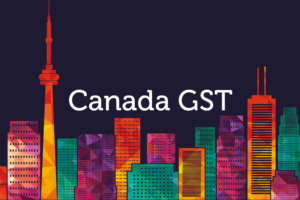Canada requires non-resident marketplaces to collect GST/HST
The Canadian government requires non-resident vendors and marketplaces to collect and remit Goods and Services Tax (GST) and Harmonized Sales Tax (HST) on taxable supplies of goods and services made to consumers in Canada. This applies to cross-border transactions made through online platforms, effective July 1, 2021.
The simplified GST Canada regime
The simplified regime in GST Canada is a simplified method for small businesses. It is calculate and remit the Goods and Services Tax (GST) and/or the harmonized sales tax (HST). Eligible businesses with taxable sales of $30,000 or less per year may use the simplified regime.
Under the simplified regime, small businesses can calculate the HST Canada by using a simplified formula. It is determine the amount of input tax credits (ITCs). They can claim, instead of tracking every GST/HST paid on expenses. The simplified formula takes into account the GST/HST paid or payable on certain expenses and the revenue from taxable supplies.
By using the simplified regime, small businesses can reduce their administrative burden and comply with their tax obligations more easily. However, businesses that use the simplified regime cannot claim ITCs for GST/HST paid on capital property or for expenses related to their exempt supplies.
Non-resident sales of digital products and services
Non-resident sales of digital products and services are subject to Canada tax. As of July 1, 2021, non-resident vendors and online marketplaces must collect and remit Goods and Services Tax (GST) and Harmonized Sales Tax (HST) on taxable supplies of digital products and services made to consumers in Canada. This applies to cross-border transactions made through online platforms.
The threshold for cross-border digital products and services
The threshold for cross-border digital products and services sold in Canada by non-resident vendors is determined based on the vendor’s “distance selling” activities. Distance selling activities are defined as the sales of taxable goods and services made to consumers in Canada. It through remote means, such as a website or an online marketplace.
If a non-resident vendor’s distance sales of taxable goods and services to consumers in Canada exceed CAD 30,000 in a 12-month period. The vendor requires to register for a Business Number with the CRA account. The Vander will collect and remit Goods and Services Tax (GST) and harmonized Sales Tax (HST) on all taxable supplies of goods and services made to consumers in Canada.
It’s important to note that this threshold applies to each vendor, not each marketplace. So, if a vendor uses multiple marketplaces to sell their digital products and services. They must still meet the CAD 30,000 threshold based on their total distance sales activities across all marketplaces.
Goods supplied through fulfillment warehouses located in Canada.
Goods supplied through fulfillment warehouses located in Canada are subject to Canadian Goods and Services Tax (GST) or Harmonized sales tax (HST) depending on the province. The applicable tax rate is determined based on the province where the warehouse is located. The supplier is responsible for charging and remitting the correct amount of tax to the Canadian Revenue Agency.
Threshold for qualifying goods
The threshold for qualifying goods for the purpose of charging Goods and Services Tax (GST) or Harmonized sales tax (HST) in Canada. It determine by the Canadian Revenue Agency (CRA). The threshold is currently CAD 30,000 per year, which is based on the total worldwide taxable supplies made by a business in a 12-month period. If a business surpasses this threshold. It is required to register for a GST/HST account and charge and remit the applicable tax on its taxable supplies.
Calculating the threshold for short-term accommodation
The threshold for short-term accommodation in Canada, for the purpose of charging GST tax or harmonized sales tax (HST). It is determine by the Canadian Revenue Agency (CRA). The threshold is currently CAD 30,000 per year. It base on the total worldwide taxable supplies made by a business in a 12-month period. If a business surpasses this threshold, it is required to register for a GST/HST account and charge and remit the applicable tax on its taxable supplies.
It’s important to note that short-term accommodations are considered taxable supplies and subject to GST/HST. Regardless of whether the business has surpassed the threshold or not. The applicable tax rate depends on the province where the accommodation is located.
Provincial Sales Tax (PST)
Provincial Sales Tax (PST) is a consumption tax levied by the Canadian provinces on the sale of goods and services. It is added to the purchase price and collected by the seller at the time of sale. The rate and scope of PST vary by province. In some provinces, PST is combined with the federal Goods and Services Tax (GST) to form a Harmonized sales tax (HST).


